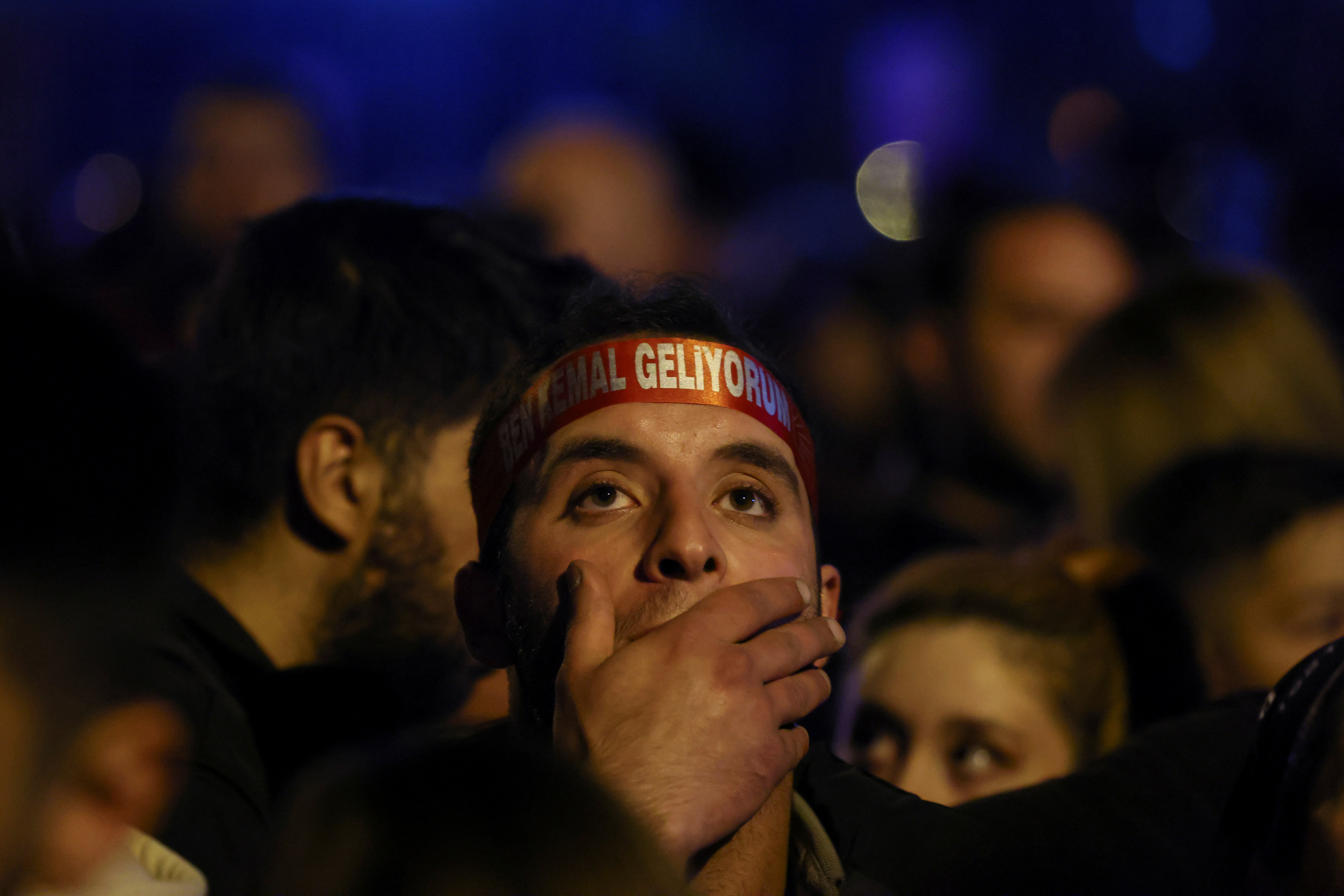ISTANBUL, May 14 (Reuters) – Turkey faces a second term in presidential elections with the parties of Tayyip Erdogan and opposition rival Kemal Kilicdaroglu but sources in both camps agree.
Early results on Sunday put Erdogan comfortably ahead, but his advantage eroded as expected as the count continued. A runoff could appear on May 28, delaying a verdict on the president’s two decades in power.
Pre-election polls had given Kilicdaroglu, who heads a six-party coalition, a slight lead, and two polls on Friday showed him above the 50% threshold. Most, however, suggested a tighter distinction.
Both sides rejected the other’s count, and no official result was announced.
Erdogan said on Sunday that rushing to announce election results while counting was underway was stealing the will of the people, while Kılıkdaroglu warned election officials to record all results nationwide.
A senior official from the opposition coalition said: “It seems unlikely that he will win the first round. But our data indicates that Kilicdaroglu will take the lead.”
Another senior opposition official told Reuters Erdogan’s party was raising objections to the ballots, delaying the full results. “So far they are doing everything they can to delay the process,” he said.
Citing figures from the state-owned agency Anadolu, Turkish media reported that with nearly 80.5% of ballot boxes counted, Erdogan won 50.43% and Kilicdaroglu 43.77%, but the opposition suggested the results were published to artificially inflate Erdogan’s tally.
Change or Continuity
Sunday’s vote is one of the most consequential in the country’s 100-year history, a contest that could end Erdogan’s 20-year rule and reverberate far beyond Turkey’s borders.
The presidential vote will determine not only who leads Turkey, a NATO-member country of 85 million, but also how it is governed, where its economy is headed amid a deep cost-of-living crisis and the shape of its foreign policy.
Supporters from both sides celebrated in Ankara.
Outside the headquarters of Erdogan’s AK Party (AKP), a crowd carried Erdogan’s posters and sang their songs and danced.
“I have been here since noon to celebrate our victory. This is our day,” said Davut, 25, who raised Erdogan’s flag at AKP headquarters.
About a thousand people gathered at the CHP party headquarters in Kıldıröğlu, waving flags and playing drums for Turkey’s founder Mustafa Kemal Atatürk.
At the party’s Istanbul office, Nurten, 62, a university lecturer, said: “We know the state’s official news agency will announce a big lead over our coalition. I think the results are in Kilicdaroglu’s favor and that will end. The first round.”
Elections to parliament are closely watched in Western capitals, the Middle East, NATO and Moscow.

[1/20] A supporter reacts during a rally at the Republican People’s Party (CHP) headquarters as voters await election results on May 14, 2023 in Ankara, Turkey. REUTERS/Yves Herman
A defeat for Erdogan, one of President Vladimir Putin’s most important allies, would worry the Kremlin but comfort the Biden administration and many European and Middle Eastern leaders who have had troubled relations with Erdogan.
Turkey’s long-serving leader has turned the NATO member and Europe’s second-largest country into a global player, modernizing it with mega projects like new bridges, hospitals and airports and building a military industry sought after by foreign countries.
But his erratic economic policy of low interest rates, a cost-of-living crisis and inflation, made him the target of voter ire. His government’s slow response to a devastating earthquake in southeastern Turkey that killed 50,000 people added to voters’ dismay.
Kilicdaroglu has pledged to set Turkey on a new course by renewing democracy after years of state repression, returning to orthodox economic policies, empowering institutions that have lost autonomy under Erdogan’s tight grip, and rebuilding fragile ties with the West.
If the opposition wins, thousands of political prisoners and activists could be released.
Polarized politics
“I see these elections as a choice between democracy and dictatorship,” said 64-year-old Ahmet Kalkan as he voted for Klikdaroglu in Istanbul, echoing critics who fear Erdogan will rule even more autocratically if he wins.
“I chose democracy and I hope my country chooses democracy,” said Kalkan, a retired health department employee.
Erdogan, 69, is the oldest of more than a dozen electoral victories and says he values democracy and rejects being a dictator.
Explaining how the president still commands support, Mehmet Akif Kahraman, a pollster in Istanbul, said Erdogan represents the future after two decades in power.
“God willing, Turkey will be a world leader,” he said.
The parliamentary vote is a contest between Erdogan’s Islamist-rooted AK Party (AKP) and the People’s Coalition, which includes the nationalist MHP and others, and Kilicdaroglu’s Nation Coalition, which includes six opposition parties, including his Turkish-founded secular Republican Party (CHP). Founder Mustafa Kemal Ataturk.
With nearly 70% of ballot boxes counted, Erdogan’s coalition won 51.43% and the opposition coalition 33.93% in the parliamentary vote.
Erdogan commands fierce loyalty from pious Turks who once felt disenfranchised in secular Turkey and his political career has weathered an attempted coup in 2016 and several corruption scandals.
However, Turks’ ousting of Erdogan has seen their prosperity and ability to meet basic needs decline, with inflation rising to 85% in October 2022 and a collapse in the lira currency.
Erdogan has tightly controlled most of Turkey’s institutions, marginalizing liberals and critics. Human Rights Watch, in its World Report 2022, noted that Erdogan’s government has set back Turkey’s human rights record for decades.
Kurdish voters, who make up 15-20% of the electorate, will play an important role, and the National Coalition is unlikely to achieve a parliamentary majority on its own.
The pro-Kurdish People’s Democratic Party (HDP) is not part of the main opposition coalition, but remains fiercely opposed to Erdogan after a crackdown on its members in recent years.
Written by Alexandra Hudson, Editing by Frances Kerry
Our Standards: Thomson Reuters Trust Principles.
